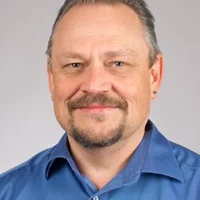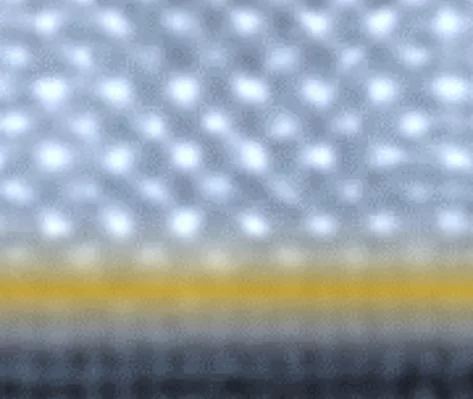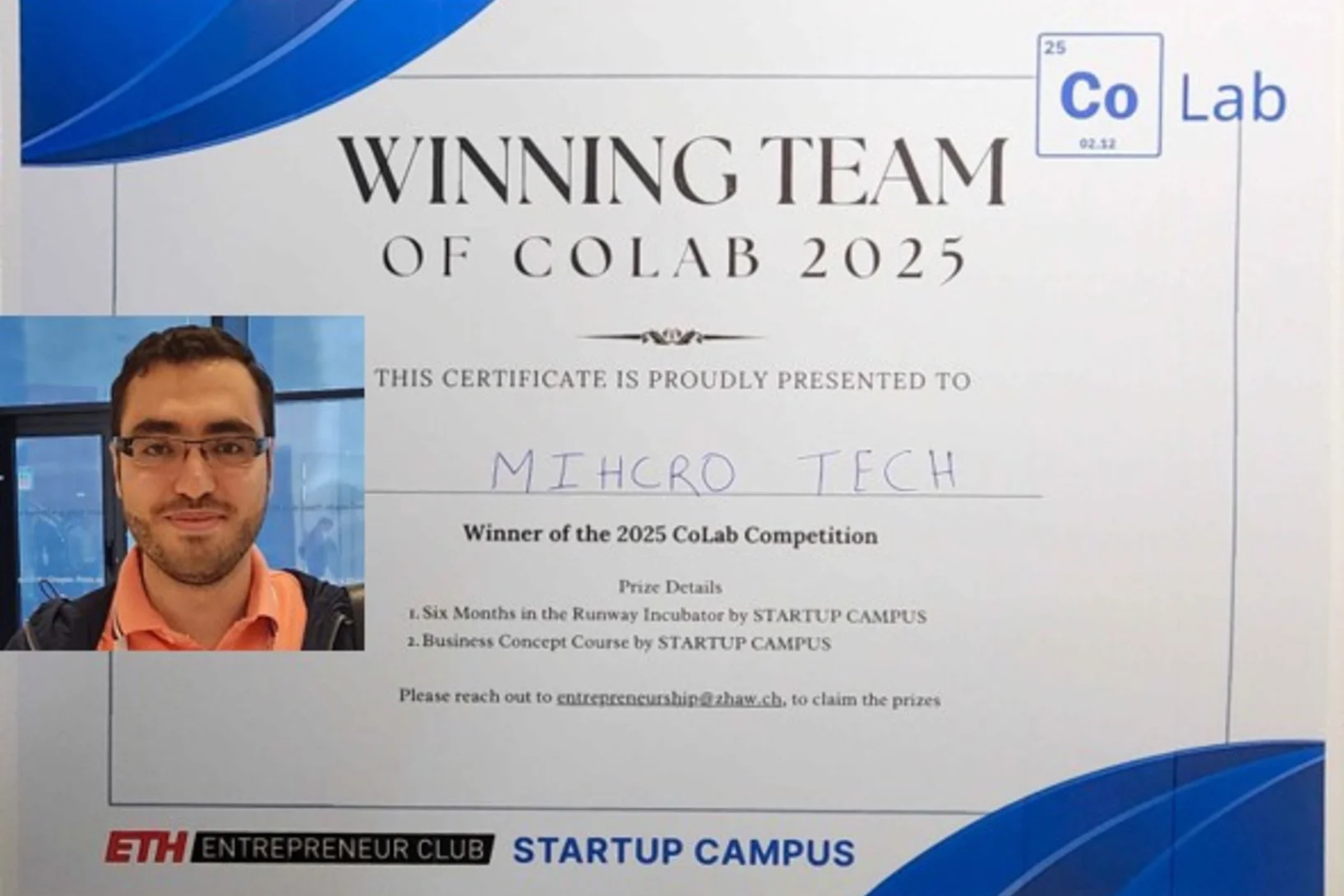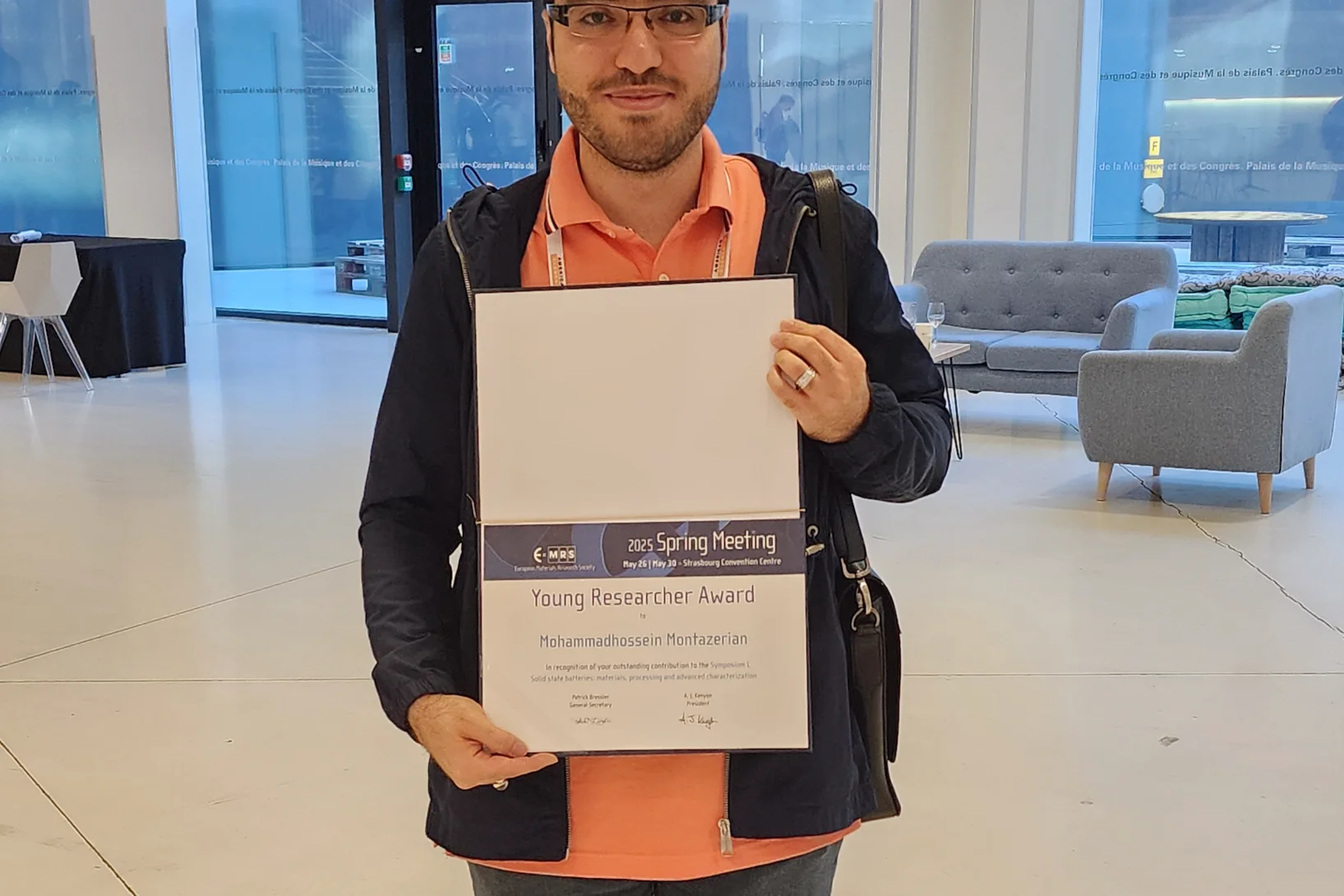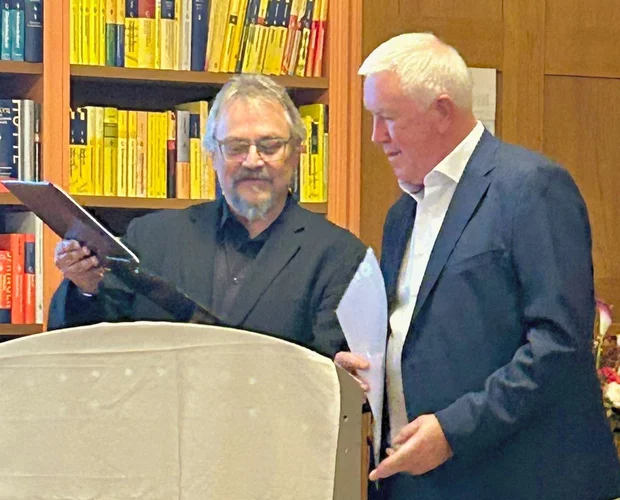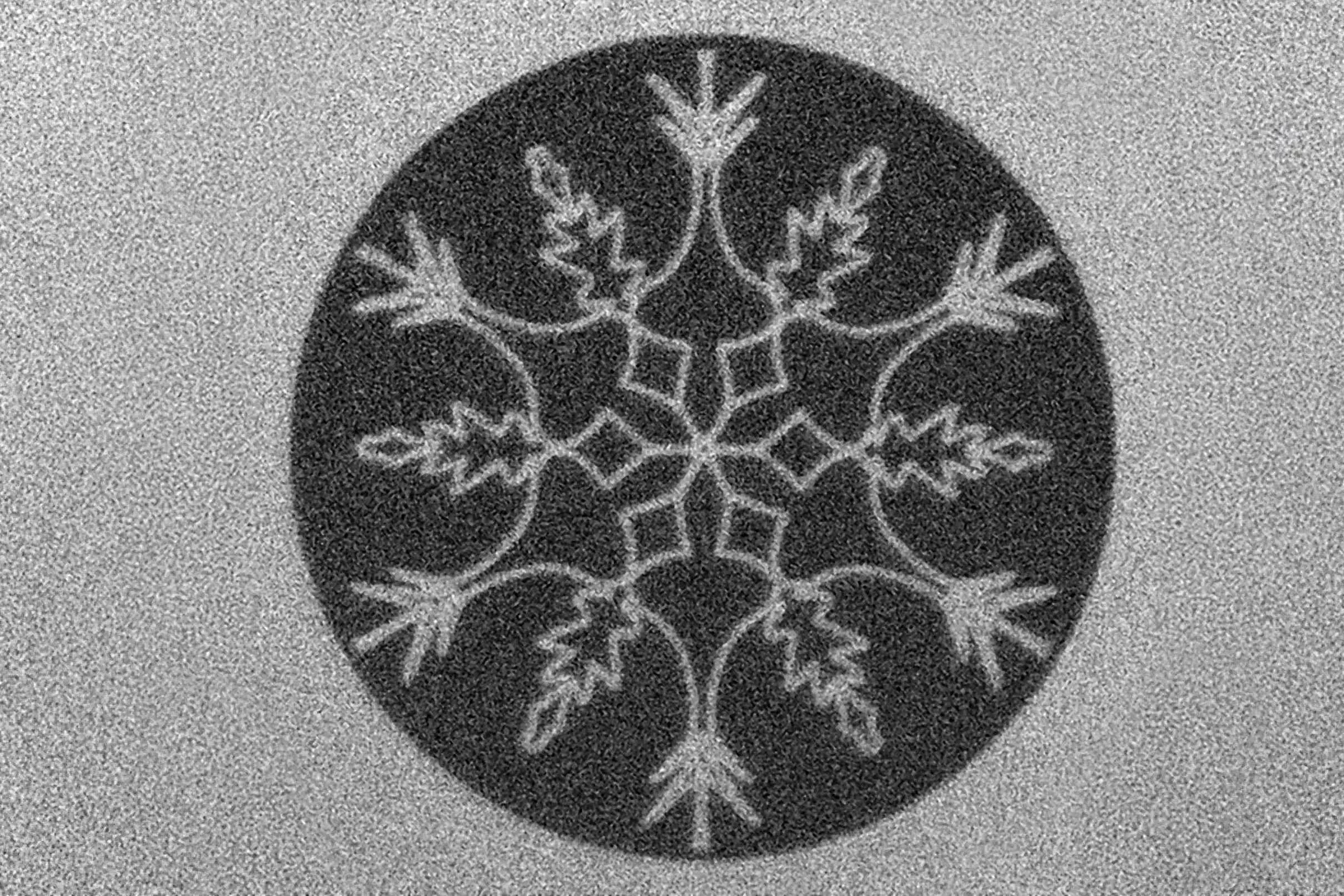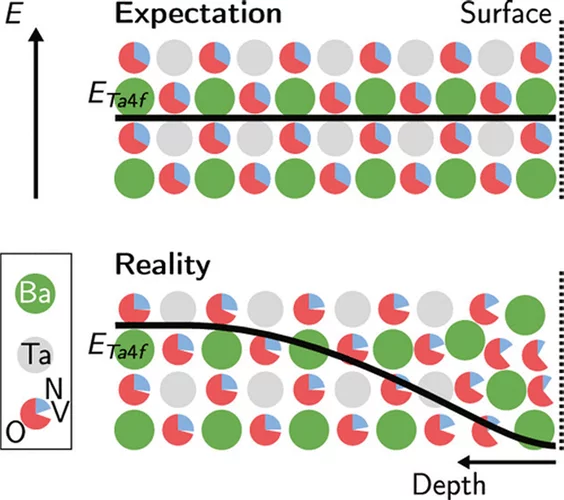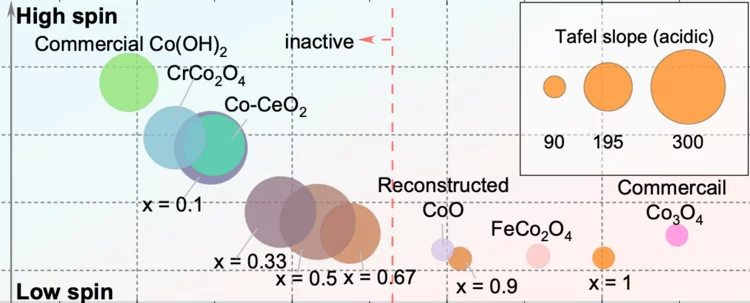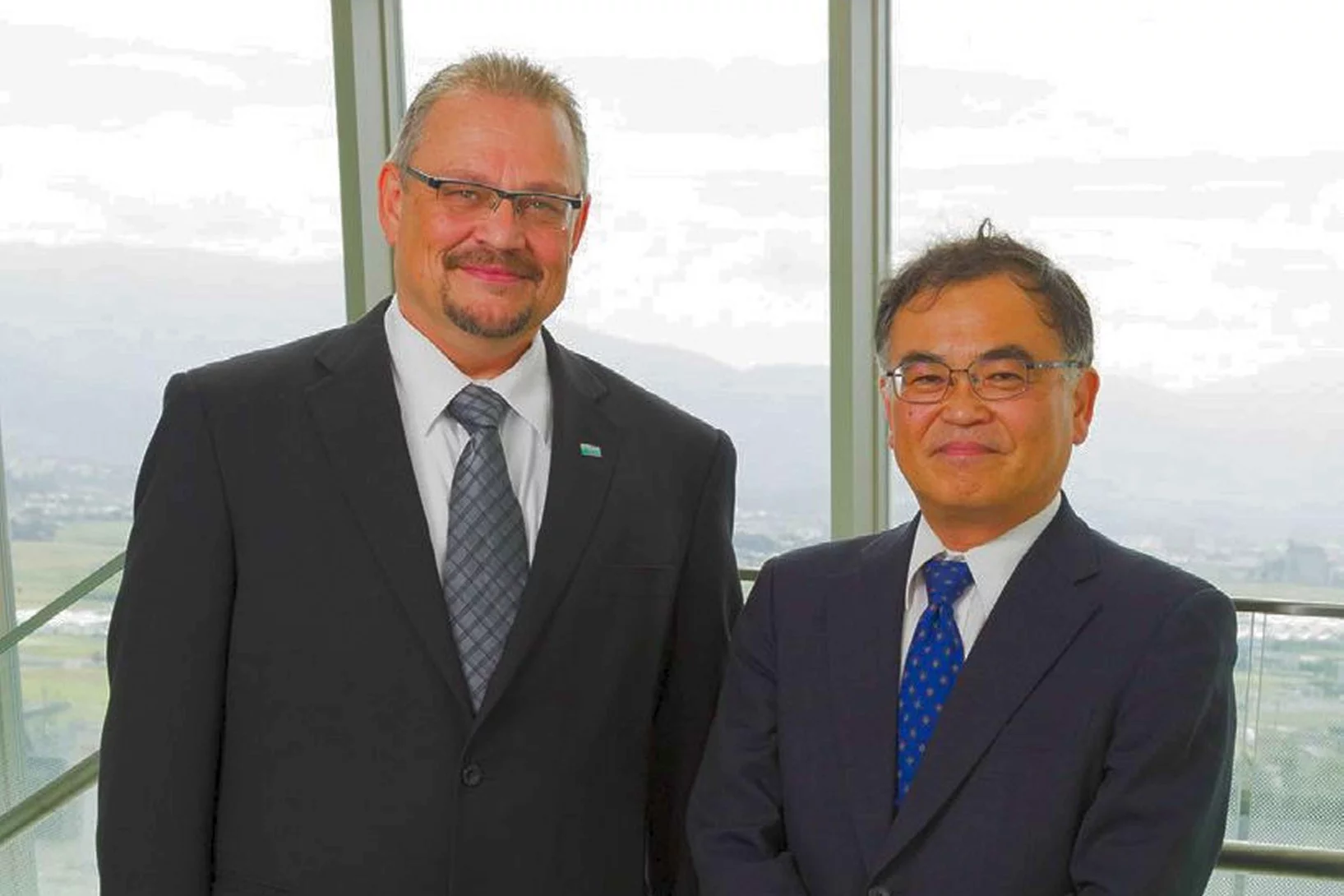Thin films are nowadays utilized in many applications, ranging from semiconductor devices to optical coatings and are even present in pharmaceuticals (polymers). This wide-spread application of films with thicknesses from atomic monolayers to microns is due to the developments of thin film deposition techniques. Thin films are also important for studies of materials with new and unique properties due to the possibility of tuning their crystallographic and morphological properties. The thin film approach, i.e. the presence of interfaces (to a substrate or the film surface) adds more degrees of freedom for influencing the properties of materials, e.g. by lattice strain or surface functionalization. For these fundamental studies of material properties large research facilities such as synchrotron radiation or neutron spallation sources are one of the keys that the Paul Scherrer Institute (PSI) provides.
News
ETH CoLab Award for Mohammadhossein Montazerian
Mohammadhossein Montazerian was part of the winning team to secure an ETH CoLab Award. It is an award to help entrepreneurial research to make a first step towards business.
E-MRS 2025 Spring Meeting Young Researcher Award for Mohammadhossein Montazerian
During its recent spring meeting the European Materials Research Society has awarded the E-MRS Young Researcher Award to Mohammadhossein Montazerian from the LMX laboratory in recognition of his "Outstanding contribution to the Symposium L: Solid state batteries - materials, processing and advanced characterization".
Julius Springer Price 2024
Prof. Thomas Lippert, Editor in Chief at Applied Physics A, awards Prof. Boris Chichkov the 2024 Julius Springer Prize for Applied Physics.
Upcoming Seminars
TFI Meeting
Date: Monday 9 February 2026, 16:00
Title: Point Defects in MBE-Grown ABO3 Perovskite Thin Films: Identification and Quantification
Guest Speakers: Prof. Dr. Roger De Souza, RWTH Aachen University
Room: OFLG/402
LMX Meeting
Date: Thursday 12 February 2026, 13:00
Title: TBA
Speaker: Stephane Nilsson
Room: OSGA/EG6b
TFI Literature Meeting
Date: Monday 16 February 2026, 16:00
Speaker: Alexander Steppke
Room: OFLG/401
TFI Meeting
Date: Monday 9 March 2026, 16:00
Title: TBA
Speakers: Kyle Stephens
Room: OFLG/402
LMX Meeting
Date: Tuesday 10 March 2026, 13:00
Title: TBA& nbsp;
Speaker: Mohammad Hossein Montazerian, Public PhD Presentation
Room: OFLG/402
TFI Literature Meeting
Date: Monday 23 March 2026, 16:00
Speaker: Khatereh Roohi
Room: OFLG/401
TFI Meeting
Date: Monday 30 March 2026, 16:00
Title: TBA
Guest Speaker: Prof. Dr. Laura Bégon-Lours, ETH Zurich
Room: OFLG/402
Upcoming Conferences
September 2024
iWOE-30 2024
International Workshop on Oxide Electronics
September 29.-2.October 2024 , Darmstadt, Germany
More Information
August 2024
International Mass Spectrometry Conference 2024
Aug. 17-23, 2024
Melbourne, Australia
More Information will be provided here
Scientific Highlights
Two-dimensional gradients in magnetic properties created with direct-write laser annealing
Across the fields of magnetism, microelectronics, optics, and others, engineered local variations in material properties can yield groundbreaking functionalities that play a crucial role in enabling future technologies. One-dimensional lateral gradients in material properties give rise to a plethora of new effects in thin-film magnetic systems. However, extending such gradient-induced behaviors to two dimensions has been challenging to realize experimentally. Here, we demonstrate the creation of two-dimensional complex patterns with continuous variations in magnetic anisotropy, interlayer exchange coupling, and ferrimagnetic compensation at the mesoscopic scale in numerous application-relevant magnetic materials. We exploit our engineered gradients in material properties to demonstrate novel magnetic functionalities, including the creation of a spin wave band pass filter and an architecture for passively resetting the position of a magnetic domain wall. Our results highlight the exciting new physics and device applications enabled by two-dimensional gradients in thin film properties.
Anionic Disorder and Its Impact on the Surface Electronic Structure of Oxynitride Photoactive Semiconductors
The conversion of solar energy into chemical energy, stored in the form of hydrogen, bears enormous potential as a sustainable fuel for powering emerging technologies. Photoactive oxynitrides are promising materials for splitting water into molecular oxygen and hydrogen. However, one of the issues limiting widespread commercial use of oxynitrides is degradation during operation. While recent studies have shown the loss of nitrogen, its relation to reduced efficiency has not been directly and systematically addressed with experiments. In this study, we demonstrate the impact of the anionic stoichiometry of BaTaOxNy on its electronic structure and functional properties. Through experimental ion scattering, electron microscopy, and photoelectron spectroscopy investigations, we determine the anionic composition ranging from the bulk toward the surface of BaTaOxNy thin films. This further serves as input for band structure computations modeling the substitutional disorder of the anion sites. Combining our experimental and computational approaches, we reveal the depth-dependent elemental composition of oxynitride films, resulting in downward band bending and the loss of semiconducting character toward the surface. Extending beyond idealized systems, we demonstrate the relation between the electronic properties of real oxynitride photoanodes and their performance, providing guidelines for engineering highly efficient photoelectrodes and photocatalysts for clean hydrogen production.
Surface oxidation/spin state determines oxygen evolution reaction activity of cobalt-based catalysts in acidic environment
Co-based catalysts are promising candidates to replace Ir/Ru-based oxides for oxygen evolution reaction (OER) catalysis in an acidic environment. However, both the reaction mechanism and the active species under acidic conditions remain unclear. In this study, by combining surface-sensitive soft X-ray absorption spectroscopy characterization with electrochemical analysis, we discover that the acidic OER activity of Co-based catalysts are determined by their surface oxidation/spin state.
